THE BHAGVAD GITA
(Shrimad-Bhagvatam)
श्रीमद-भागवतम - (भगवत-गीता)
(Shrimad-Bhagvatam)
श्रीमद-भागवतम - (भगवत-गीता)
 |
| The battlefield of Kurukshetra - The war of MahaBharat -The scene of The sermon of 'The Gita'- |
The Bhagavad-Gita is part of the epic The 'MahaBharat' - the longest poetry ever written in terms of words, verses or characters it contains. The Bhadvad Gita, (also called 'Srimad Bhagvatam' or 'The Gita'), like the whole of MahaBharat, is written in verses, in poetry form like all other Hindu scriptures. This epic was dictated by Ved Vyasa महर्षि वेद व्यास and written by God Shri Ganesha भगवान श्री गणेश. The MahaBharat is the story of the descendants of the great King Bharat and fight between warring cousins, the evil Kauravs कौरव - children of the blind king Dhritrashtra and the righteous Pandava princes, the children of Dhritrashtra's brother, Pandu.
In modern times two Hindu scriptures are most widely read and followed; The Ramayana- रामायण and The Srimad Bhagvad Gita- श्रीमद भग्वतम-गीता). For the spiritual guidance, The Gita - as it is most popularly called, is considered the most important. It is the center-piece of modern Hindu philosophy, and it spirituality although God Krishna provides many references to the Vedas in sermon to Arjuna.
Probably the MOST important aspect of The Gita is that it is the 'only' scripture among all religions of the world where the 'God' himself has instructed how to live a life and how to conduct one'self in his/her lifetime.
It is the only instance where a human was able to witness 'God' (when Krishna shows His Universal splendor -Vishwaroop - विश्वरूप to Arjuna).
ERA/TIME: Although the precise date/year of the sermon of The Gita cannot be determined, we can safely state that it is at least 11,000 years old. This is not a guess work (it is based on the scientific findings through carbon dating and floro-luminescence test proofs of the discovery of Krishna's capital city of Dwarka which was submerged around 9000 BCE).
THE SCENE/SETTING: As the vast armies on both sides of the warring cousins took positions, Arjuna, the Pandava-पांडव warrior prince had self doubt; not about his ability but about the futility of war. His doubts and dilemma were compounded when he saw his dearest ones including his dearest grand-father, the revered great-grandfather Bhishma-भीष्म, his Guru Dronacharya -द्रोणाचार्य, his uncles and friends and his very own cousins, in the opposite ranks, and he wondered if his victory upon their deaths was worth the war, or the cause for which he was there on the battlefield. God Krishna had accepted Arjuna's request to become his charioteer (but Krishna had sworn He would not actively participate in any manner, throughout the war). In his self-doubt and uncertainty about his duty, Arjuna turns to Krishna for advise and solicit. The conversation between God Krishna and him is called the 'Song of God (Bhagvan-भगवान)' - The Bhagvad Gita.
The Bhagvad-Gita is a dialogue between God Krishna-भगवान श्री कृष्ण and Prince Arjuna-अर्जुन.
The chapters of Gita begin with the blind Kuru King Dhritarashtra ध्रितराष्ट्र requesting his minister and confidant, Sanjaya संजय (who had been blessed with divine vision), to narrate the battle between his sons, the Kauravas, and their cousins, the Pandavas (sons of his Dhritarashtra's brother, Pandu). As Arjuna surveys the opposing ranks and files, and prepares to fight, he sees the sons of Dhritarashtra drawn in military array and requests infallible Krishna to draw his chariot between the two fighting forces. There in the midst of both armies, Arjuna’s mind reels as he foresees the imminent death of his teacher, relatives, friends and dear ones. He puts down his arms and decides not to fight.
***
In chapter One and in the beginning of Chapter Two, Arjuna presents his arguments for reasons of refusing to fight. He fears the sinful reactions of killing. Arjuna surrenders to Lord Krishna and requests the Lord to guide him. Krishna begins countering Arjuna’s objections by first, analytically explaining that fighting is his Dharma धर्म,-His eternal duty - and it is transcendental and it will be no sin because he will be fighting for just cause and for his right.
Krishna also explains the Vedas’ purpose to gradually elevate souls to God consciousness and thus encourages Arjuna to keep his focus on his duty, his Dharma, and fight – and ignore his mind’s desires.
Krishna’s explains why Arjuna should fight. Krishna glorifies both ‘buddhi-yoga’ बुद्धि योग, (intelligence used in spiritual advancement of knowledge) (2.45, 2.49-50), and ‘karma’ कर्म, action - (2.47-48, 2.50), Arjuna becomes confused and wishes to use Krishna’s instruction to perform ‘buddhi-yoga’ as an excuse to retreat from the battlefield for a life of contemplation. Arjuna therefore opens Chapter Three asking Krishna why He is encouraging fighting if intelligence is better than fruitive work. Krishna then explains ‘karma-yoga’ कर्म-योग- reaction-free devotional work- and clears Arjuna’s mistaken idea that all work is fruitive and leads to bondage. Krishna also instructs Arjuna to fight to set forth an example of duty. Krishna therefore tells Arjuna to fight, but with knowledge and detachment (3.29-30), without falling victim to his own attractions and aversions.
In response to Arjuna’s question on the 'cause of a soul’s existence' impelled to improper action or neglect of duty, Krishna names the enemy: lust. He then recommends Arjuna to regulate his senses, become fixed in his pure identity as a servant of Krishna, and thereby avoid material desire’s control. Then, with spiritual strength, and focused intelligence, he should conquer that forceful enemy – material desire.
मात्रास्पर्शास्तु कौन्तेय शीतोष्णसुखदुःखदाः ।
आगमापायिनोऽनित्यास्तांस्तितिक्षस्व भारत ॥
matra-sparsas tu kaunteya sitosna-sukha-duhkha-dah
agamapayino 'nityas tams titiksasva bharata
O Son of Kunti! The interaction of sense and sense objects which are temporary experience
मात्रास्पर्शास्तु कौन्तेय शीतोष्णसुखदुःखदाः ।
आगमापायिनोऽनित्यास्तांस्तितिक्षस्व भारत ॥
matra-sparsas tu kaunteya sitosna-sukha-duhkha-dah
agamapayino 'nityas tams titiksasva bharata
O Son of Kunti! The interaction of sense and sense objects which are temporary experience
give pleasure, happiness, sorrows, cold and heat, O scion on Bharata!
Try to tolerate them without being disturbed.
Ch2:Sh14
Ch2:Sh14
***
While in Chapter Three, Krishna recommends that Arjuna fight with absolute knowledge of Him (3.30), the
Lord, in Chapter Four, explain different aspects of transcendental knowledge.
First, Krishna explains how to attain spiritual knowledge through disciplined succession. Later Krishna explains the reason for His appearance and then of His mission. He explains His devotional service as the goal (Krishna had already referred to the importance of performing ‘yajna’ यज्ञ-sacrifice, in 3.9). Krishna next explains a soul’s relationship with Him - as eternal - His part and parcel, which one must approach a knowledgeable spiritual master to learn. Chapter Four ends with Krishna glorifying transcendental knowledge and requesting Arjuna to arm himself with this knowledge – which burns all sinfull reactions to ashes – and fight!
यदि उत्सीदेयुरिमे लोका न कुर्यां कर्म चेदहम् ।
संकरस्य च कर्ता स्यामुपहन्यामिमाः प्रजाः ॥
Yadi Utsideyurime Lika Na Kuryan Karma Chedaham;
संकरस्य च कर्ता स्यामुपहन्यामिमाः प्रजाः ॥
Yadi Utsideyurime Lika Na Kuryan Karma Chedaham;
Sankarasya Cha Karta SyamuPahanYamimah Prajah:
Thus if I do not perform my duties, mankind will take it as an example and forego their duties.
Then the difference between truth and lie will cease to exist,
illusion will increase and in the end society will be destroyed.
Ch3:Sh24
***
After Arjuna has been impressed upon by the importance of both, work (which requires activity) and seeking knowledge (which tends to be inactive), Arjuna is perplexed. His mind is confused, and he sees fighting and knowledge as contradictions. Thus opens Chapter Five where Arjuna asks Krishna to clearly define whether the renunciation of work (speculation, ‘sankhyaसंख्य, gyana-ज्ञान’, inaction-in-knowledge), or work in devotion is superior. Krishna states that one who is detached from his work’s results is the one who is truly renounced; such a person knows that while the body acts, he - the soul, actually does nothing. Arjuna should therefore, do his duty steadily act for the satisfaction of Krishna. Impartially viewing the external world, he should reside in his body aloof from bodily activities. By fixing his consciousness on the Supreme and knowing that Krishna is the true enjoyer, the goal of sacrifice and austerity, and the Lord of all planets, he, the pure soul, will find true peace beyond this material world.
In the first five chapters, Krishna has explained ‘buddhi-yoga’ बुद्धि योग, working with consciousness focused on Krishna without fruitive desires. The Lord has also explained ‘sankhya’, ‘karma-yoga’,and ‘gyana-yoga’ ज्ञान-योग to obtain liberation and as steppingstones to Krishna consciousness. Now, at the end of the Fifth Chapter अध्याय (5. 27-28) and continuing on to the Sixth Chapter (wherein Krishna explains practical points for a practicioner), Krishna explains ‘dhyana- yoga’ ध्यान-योग concluding that ‘dhyana’, or meditation upon Krishna, is meditation’s final goal.
 |
| God Krishna & His devotee, Arjuna blowing the conch, declaring the beginning of the war of MAHABHARAT |
At the end of Chapter Six, Krishna states that one should initiate his practice of yoga from the point of concentrating of one's mind on Krishna.
Chapter Seven thus opens with Krishna explaining knowledge of Himself and His opulent energies. Thus Arjuna can fully worship Krishna, as described at the end of Chapter Six, and think of Krishna with devotion as he fights. Krishna first explains that as He is the Supreme Truth, everything in existence is a combination of His material and spiritual energies. He is the active principle within all and is all- pervasive through His diverse material and spiritual energies. Because the world’s activities are conducted by the three modes of nature which emanate from Him, (Although Krishna is independent and above them) only those who surrender to Krishna can cross beyond these modes to know Him. Four kinds of impious souls never surrender to Krishna while four kinds of pious souls do surrender. Krishna also covers Himself from the impersonalists, who are less intelligent, and from those who surrender to the demigods. But those who are truly pious, the undeluded, serve Krishna as the governor of the material manifestation, the demigods, and sacrifice, can know and understand Krishna – even at the time of death.
***
 |
| GOD KRISHNA |
बीजं मम सर्व भूतनं
BEEJAM MUM SARVA BHUUTANAM - "I AM THE ORIGINAL SEED OF ALL BEINGS"
***
Chapter Eight begins by Arjuna asking Krishna about Brahmam-ब्राह्मण, karma, the demigods, the material world, and knowing Krishna at the time of death. Krishna first briefly answers Arjuna’s first five questions and then begins explaining in detail how to know Krishna at the time of death. Since one attains what one remembers at the time of death, if one remembers Krishna, one goes to Him. Krishna then explains how He can be constantly thought of as the transcendental person who knows everything, the oldest controller, the smallest, the maintainer. Thus by practicing yoga and remembering Krishna, Krishna explains, one will go to the eternal spiritual world and never return to this temporary, miserable material world (one finds Moksha-मोक्ष-freedom from cycle of life and death). Then, after describing the different yogic ways in which one may leave this world, Krishna advises Arjuna not worry about other paths – either Vedic study, yoga, austere sacrifices, charity, jnana, or karma – for the results of these will all be obtained through performing devotional service. And in the end, such a yogi in devotion, reaches the supreme eternal abode.
Ch8:Sh14
अनन्यचेताः सततं यो मां स्मरति नित्यशः ।
तस्याहं सुलभः पार्थ नित्ययुक्तस्य योगिनीः ॥
ananya-cetah satatam yo mam smarati nityasah
tasyaham sulabhah partha nitya-yuktasya yoginah
अनन्यचेताः सततं यो मां स्मरति नित्यशः ।
तस्याहं सुलभः पार्थ नित्ययुक्तस्य योगिनीः ॥
ananya-cetah satatam yo mam smarati nityasah
tasyaham sulabhah partha nitya-yuktasya yoginah
O Arjun! A person whose mind is unbounded by pleasures, who continuously
and perpetually remembers me, he can reach me easily.
Ch8:Sh15
मामुपेत्य पुनर्जन्म दुःखालयमशाश्वतम् ।
नाप्नुवन्ति महात्मानः संसिद्धिं परमां गताः ॥
मामुपेत्य पुनर्जन्म दुःखालयमशाश्वतम् ।
नाप्नुवन्ति महात्मानः संसिद्धिं परमां गताः ॥
mam upetya punar janma duhkhalayam asasvatam
napnuvanti mahatmanah samsiddhim paramam gatah
napnuvanti mahatmanah samsiddhim paramam gatah
Having attained me, the great souls never return to this house full of sorrows
and take transitory rebirth as they have reached the final delight.
***
 |
| Arjuna in action in the war. God Krishna riding Arjuna's chariot |
Krishna then explains the fortunate position of such devotees: If one worships Krishna, Krishna cares, compensates for his deficiencies, and preserves his strengths. And all Krishna asks for is an offering of a leaf, a flower, or some water – if it is offered with devotion. Thus His devotee comes to Him. Even if a devotee unintentionally commits a horrendous act, he will be rectified, for Krishna promises that His devotee will never perish.
In Chapter Ten, Krishna explains His opulence elaborately and thereby reveals Himself as the Supreme Personality of Godhead, the source of all. Krishna also tells how His pure devotees know that He is the unborn Supreme Lord, the source of all sages, the source of the material and spiritual worlds, and the source of all qualities and attitudes. Thus pure and wise devotees worship Krishna, converse about Him, and with thoughts dwelling in Him, undeluded and free from sin, engage in His service. Out of compassion, Krishna within their hearts destroys any existing ignorance.
PITMAH ASYA JAGATO-
पितामह अस्य जगतो -
"I AM THE FATHER OF THIS UNIVERSE"
(Chapter 9: verse/Sholka 17)
patram pushpam phalam toyam yo me bhaktyo prayacchati,
tad aham bhakti-upahratam asnami prayatmanah:
पत्रम पुष्पं फलं तोयं यो मे भक्त्यो प्रयच्चति
तद अहम् भक्ति-उपहारतम असनामी प्रयत्यनामः
a leaf, flower, fruit or water offered to me
with devotion and love, I accept it
(hapter-9: Shloka-26)
***
In Chapter Ten, Krishna explains His opulence elaborately and thereby reveals Himself as the Supreme Personality of Godhead, the source of all. Krishna also tells how His pure devotees know that He is the unborn Supreme Lord, the source of all sages, the source of the material and spiritual worlds, and the source of all qualities and attitudes. Thus pure and wise devotees worship Krishna, converse about Him, and with thoughts dwelling in Him, undeluded and free from sin, engage in His service. Out of compassion, Krishna within their hearts destroys any existing ignorance.
After learning of Krishna’s opulence, Arjuna acknowledges Krishna as the Supreme Lord by quoting authorities and explains that only Krishna can truly know Himself. Krishna then tells of His divine manifestations within this world – as the Supreme soul परमात्मा / ब्राह्मण, the ocean, the Himalayas – which merely indicate His limitless opulence, for a single fragment of Krishna’s energy pervades and supports this entire universe! Arjuna, although acknowledging that Krishna in the two-armed form that he now sees before him is Supreme, still requests Krishna to reveal that all-pervading Universal Form that supports the Universe. Thus, in Chapter Eleven, Krishna proves Himself as the Supreme Lord and He establishes the criteria that anyone who claims to be God must also show a Universal Form. Krishna then reveals to Arjuna His wondrous effulgent, all-expansive form, and Arjuna sees all soldiers on both sides dying within it. Krishna explains His form as time, the destroyer of all world, and requests that Arjuna, knowing in advance the inevitable d of all the warriors, become His instrument. In answer to Arjuna’s fearful prayers, Krishna first shows His multi-armed form before again returning to His original two-armed form. Krishna then states that his two-armed form can only be seen by pure devotees, and such pure devotees, working for Krishna, free from desiring fruitive activities, and who make Krishna the su goal of their lives, certainly come to Him. Krishna reveals His Vishwaroopविश्वरूप (the supreme form of Brahman). Then He states 'Aham Brahmasmi' - अहम् ब्रह्मास्मी - (I am Brahman - The Supreme power, the supreme soul). Krishna also states that He is the 'Ek Aakshar - One Word' - AUM! ॐ'
***
 |
| 'Aum' is the Universal and eternal symbol of God Himself |
Then qualities that endear a devotee to Krishna, which Krishna next mentions, such as equality in both happiness and distress, independence from the ordinary course of activities, satisfaction, and the faithful following of the path of devotional service, are also part of the process of worshiping Krishna in devotional service.
***
 |
| Lord Ganesha भगवान गणेश writing The MahaBharat, as dictated by Ved Vyasa |
The Thirteenth Chapter clearly explained that by humbly developing knowledge one can become free from material entanglement. It is also explained that the living entity’s entanglement within the material world due to his association with the modes of material nature (13. 20-22).
***
In Chapter Fourteen, Krishna explains in detail, the three modes – goodness, passion and ignorance – those forces that bind and control all conditioned souls within this world. A soul can, however, transcend these modes through devotional service (All other processes are contaminated by the modes). Thus the limitations imposed by his field of activities can be overcome and the soul can be elevated to the Brahman platform, the constitutional position of purity and happiness – a platform of which Krishna is the basis. Thus achieving 'Nirvana'निर्वाण- a mental state of absolute bliss.
To achieve Nirvana one must be detached from the modes and their results in order to be attached to the service of the Lord, Krishna describes in Chapter Fifteen the process of freeing oneself from matter’s grip. He begins by comparing the material world to a gigantic, upside-down banyan tree, invoking Arjuna to detach himself from it through surrender. Thus, the soul can end its trans-migrations and return to Him in the spiritual world. Although the foolish cannot understand that the soul transmigrates (quitting one body to obtain a new body) based on his mind’s desires, transcendentalists see this clearly. The foolish can learn to

see properly by understanding that it is Krishna who is the splendor of the sun, moon, and fire, as the one keeping the planets in orbit and making vegetables succulent. They can see Krishna as the fire of digestion; as the Paramatma in everyone’s heart; as the giver of remembrance, knowledge, and forgetfulness; and as the goal of the Vedas and the compiler of Vedanta. Krishna then reveals that knowing Him as the Supreme Personality of Godhead and engaging in His service is the ultimate purpose of the Vedanta वेदान्त and the most confidential part of the Vedas.
सर्वस्य चहम ह्रदि संनिविस्तो-
SARVASYA CHAHAM HRDI SANNIVISTO - "I DWELL IN EVERY HEART"
***
In Chapter Sixteen, after mentioning twenty-six godly qualities, Krishna explains the demoniac nature which degrades the soul through arrogant, ignorant, and conceited pursuits of sense gratification and power. Krishna explains the demonic mentality as follows: The world is unreal and is produced only of sex desire. Taking shelter of lust, they think of sense gratification as the goal of life and scheme to illegally increase their wealth. While plotting to kill their ‘competitor’ enemies, they think themselves powerful and happy, and they, surrounded by their relatives, use sacrifices and charity only to further increase their happiness. Perplexed by illusory anxieties, bewildered by self-complacency, impudence, and wealth; and envying the Supersoul within their own bodies and within the bodies of others, demons blaspheme real religion. These mischievous, lowest amongst men are repeatedly cast by Krishna into demonic species to gradually sink to the most abominable forms of existence. Krishna ends the chapter by explaining that because lust, anger and greed are the beginnings of demonic life, all sane men should therefore give them up and understand their duty through faithfully following the scriptures.
Krishna has concluded Chapter Sixteen by declaring that the ultimate difference between the divine and the demoniac is that the divine follow the scriptures while the demons do not.
LUST, ANGER AND GREED ARE THE THREE GATES TO HELL
chapter16: Shoka 21
***
 |
| Vedic Knowledge is considered most important to enlighten oneself, to attain spiritual and transcendental knowledge |
In the beginning of Chapter Seventeen, Arjuna inquires more about those who don’t follow scriptures, but who worship according to their imaginations. Krishna answers by describing how the combination of the modes of material nature that control a particular person will dictate a person’s faith, worship, eating, sacrifices, charity and austerity. The chapter ends with Krishna explaining the syllables ‘Aum-Tat-Sat' -ॐ-तत-सत’ and how these syllables indicate that any sacrifice, austerity, or charity dictated by the modes and performed without devotional service is useless in this life or the next.
One should therefore directly take to Krishna’s consciousness.
***
The entire Bhagavad-Gita is concluded in seventeen chapters, and in the Eighteen Chapter, Krishna reviews the knowledge already presented. In this chapter Krishna concludes, as He has done througout the Bhagavad-Gita, that one should practice devotional service – Krishna conciousness.
Since Arjuna’s basic desire to renounce his duty of fighting was fear of sinful reaction, Krishna explains true renunciation and how to transcend sinful reactions by
(1) being indifferent from the fruits of activities
(2) abiding by the order of the Supersoul
(3) worshiping the Lord through one’s fruits of work by acting either as ‘brahmana’,'ksatryia’,'vaisya’, or ‘kshudra’ according to one’s mode of nature. (Each leads Arjuna to fight) Thus, one can achieve the self-realized position of ‘brahma-bhuta-ब्रह्म-भूत’and that position, detached from all material things, one can practice pure devotional service.
(1) being indifferent from the fruits of activities
(2) abiding by the order of the Supersoul
(3) worshiping the Lord through one’s fruits of work by acting either as ‘brahmana’,'ksatryia’,'vaisya’, or ‘kshudra’ according to one’s mode of nature. (Each leads Arjuna to fight) Thus, one can achieve the self-realized position of ‘brahma-bhuta-ब्रह्म-भूत’and that position, detached from all material things, one can practice pure devotional service.
Krishna can only be known through surrendering to Him in devotional service, and by this direct process – free from karma or jnana, Arjuna should need not fear any sinful reactions. Under Krishna’s protection, such a pure devotee will reach “Krishna-loka-कृष्ण-लोक (The abode of Krishna)”. Krishna instructs Arjuna that he should surrender to the Supreme Lord within his heart and thus attain peace in His supreme, eternal abode. The most confidential knowledge is then explained by Krishna: “Become My devotee, always think of Me, act for Me, worship Me, and offer all homage unto Me. Surrender unto Me alone. Do not fear sinful reactions.”
After hearing the instructions of Sri Krishna, Arjuna is fixed and ready to fight. Sanjaya, after narrating this conversation to Dhritarashtra, ecstatically thinks of the wondrous two-armed form of Krishna and predicts victory for Arjuna, the supreme archer, for he is surrendered to Krishna, the master of all mystics.
सर्व धर्मं परित्याग्यम मम एकम शरणम् व्रज अहम् त्वं सर्व-पापेभ्यो मोक्षयिसमी म सुचः
FORGEGO ALL FORMS OF RELIGION AND JUST SURRENDER UNTO ME,
I WILL RELIEVE YOU OF ALL SINS. YOU SHOULD FEAR NOT!
chapter-18: Shloka-66
***
Note: It is impossible to write such an esteemed and voluminous scripture in brief. However, this has been my humble attempt to write in brief about The Bhagvad-Gita.
***
SUMMARY:
To write in very brief is virtually impossible but I am trying here to simplify it.
The Bhagavad Gita is the essence of the Vedas-वेद and Upanishads-उपनिषद्. It is a conversation between God Krishna-भगवान श्री कृष्ण and His devotee, Arjuna-अर्जुन - the Pandava prince. The Gita can be called a universal scriptures (not just for the followers of Sanata Dharma) - but for all of mankind. It is a moral and principle guide to all humans. The Gita is considered as the 'most' revered scripture among Hindus because it contains sublime thoughts and practical instructions on Yoga-योग, Bhakti-भक्ति-Devotion, Vedanta-वेदान्त (the essence of The Vedas), a guide to one's Karma-कर्म-actions and guide to mankind's duty-Dharma-धर्म!
In The Gita, Krishna speaks about virtually all aspects of man's life. He speaks about the creation of the universe and how it was created and the purpose of existence of humans. He speaks about the soul and explains how the soul is immortal and indestructible (as Krishna says, it can't be burnt, it can't be cut and it can't die). The soul migrates from one body to another (like we change cloths, the soul changes bodies). Each incarnation of the soul is called - Sansara (संसार).
God Krishna guides us how we must perform our 'Dharma' and do our 'Karma' without expecting fruitful returns and leave the rest in hands of God. He guides us towards a pious and fruitful life by living a life of simplicity and devotion to God. This in return helps us in achieving Nirvana-निर्वाण (a state of absolute mental bliss) and Moksha-मोक्ष (freedom from the cycle of life and death) through numerous ways. The simplest way to put it would be... One must perform one's Dharma-duty as a human being and adhere to all of one's responsibilities, as a family man, as a member of society, or as a man with power (ruler/administrator/etc). We should do our duties with detachment while concentrating solely on God Himself. Our actions result in what we get in return (God always ensures we get what we deserves). His greatest reward to the most pious of men, is Moksha - which is the ultimate goal of man. When a soul achieves Moksha, it merges with the supreme soul- Parmatma (परमात्मा). Krishna stresses on the importance of recognizing that - Aatma-आत्मा is part of Brahman-ब्राह्मण - (Parmatma).
God Krishna guides us how we must perform our 'Dharma' and do our 'Karma' without expecting fruitful returns and leave the rest in hands of God. He guides us towards a pious and fruitful life by living a life of simplicity and devotion to God. This in return helps us in achieving Nirvana-निर्वाण (a state of absolute mental bliss) and Moksha-मोक्ष (freedom from the cycle of life and death) through numerous ways. The simplest way to put it would be... One must perform one's Dharma-duty as a human being and adhere to all of one's responsibilities, as a family man, as a member of society, or as a man with power (ruler/administrator/etc). We should do our duties with detachment while concentrating solely on God Himself. Our actions result in what we get in return (God always ensures we get what we deserves). His greatest reward to the most pious of men, is Moksha - which is the ultimate goal of man. When a soul achieves Moksha, it merges with the supreme soul- Parmatma (परमात्मा). Krishna stresses on the importance of recognizing that - Aatma-आत्मा is part of Brahman-ब्राह्मण - (Parmatma).
While one does one's Karma and performs one's Dharma, he/she should totally dedicate himself/herself to God and offer his actions as his service to God.
***
Krishna, in Bhagvad Gita, to Arjuna
Yada Yada hi dharmasya, glanir bhavati Bharata,
Abhyuthanam adharmasya tadatmaanam shryujaamyaham;
Paritranaaya Saadhunaam, Vinashaayaka cha dushkritam,
Dharma Sansthapanathaay, Sambhavaami Yuge Yuge
Hey, Bharat (Arjuna), Whenever faith declines, and it is under attack,
Whenever adharma (sin) is on ascendancy without control,
I re-incarnate myself with all my powers to restore faith,
age after age!
Ch3:Sh21
यद्यदाचरति श्रेष्ठस्तत्तदेवेतरो जनः ।
स यत्प्रमाणं कुरुते लोकस्तदनुवर्तते ॥
Yadyada Charit ShresthasttaDeveTaro Janah;
Sa YatPranaaman Kurute LokastaDanuvartate:
स यत्प्रमाणं कुरुते लोकस्तदनुवर्तते ॥
Yadyada Charit ShresthasttaDeveTaro Janah;
Sa YatPranaaman Kurute LokastaDanuvartate:
When a great human behaves, common man follows his example.
That great man sets a standard and the society follows him.
Ch3:Sh22
न मे पार्थास्ति कर्तव्यं त्रिषु लोकेषु किंचन ।
नानवाप्तमवाप्तव्यं वर्त एव च कर्मणि ॥
Na Me Paarthasti Kartavyam Lokesu Kinchan;
That great man sets a standard and the society follows him.
Ch3:Sh22
न मे पार्थास्ति कर्तव्यं त्रिषु लोकेषु किंचन ।
नानवाप्तमवाप्तव्यं वर्त एव च कर्मणि ॥
Na Me Paarthasti Kartavyam Lokesu Kinchan;
NaanaVaptaMavaptavyam Vara Ave Cha Karmani:
O Arjun! There is nothing left for me to do in the three worlds,
yet (for the sake of mankind to follow, I set excellent example) I perform my duties.
Ch3:Sh23
यदि ह्यहं न वर्तेयं जातु कर्मण्यतन्द्रितः ।
मम वर्त्मानुवर्तन्ते मनुष्याः पार्थ सर्वशः ॥
Yadi Hyaha Na Varteyam Jaatu Karmannyatindratah;
yet (for the sake of mankind to follow, I set excellent example) I perform my duties.
Ch3:Sh23
यदि ह्यहं न वर्तेयं जातु कर्मण्यतन्द्रितः ।
मम वर्त्मानुवर्तन्ते मनुष्याः पार्थ सर्वशः ॥
Yadi Hyaha Na Varteyam Jaatu Karmannyatindratah;
Mam VatarmanuVartante Manushyah Parth Sarvashah:
Because O Arjun, if do not perform my duties with utmost caution
then all of mankind will follow that course.
then all of mankind will follow that course.
***
What has happened was Good,
What is happening is Good,
What will happen will be Good,
What was your's for which you cry?
What did you bring with you which you have lost?
What have you produced which is destroyed?
What you toook, you got from here
What you gave, you got it here,
What is your's belonged to someone earlier
and it will belong to someone else later!
CHANGE IS THE LAW OF THE UNIVERSE!
~Shri Krishna~
"yada yada hi dharmasya
glanir bhavati bharataabhyutthanam adharmasya
tadatmanam srjamy aham" (Bhagwat Gita: Chapter Four verse 7)
"Sri Krishna said: Whenever and wherever there is a decline in virtue/religious practice, O Arjuna, and a predominant rise of irreligion—at that time I descend Myself, i.e. I manifest Myself as an embodied being."
"paritranaya sadhunam
vinasaya cha duskritam
dharma-samsthapanarthaya
sambhavami yuge yuge" (Bhagwat Gita: Chapter Four verse 8)
"Sri Krishna said: To deliver the pious and to annihilate the miscreants, as well as to reestablish the principles of religion, I Myself appear, millennium after millennium."
"karmany evadhikaras te
ma phalesu kadachana
ma karma-phala-hetur bhur
ma te sango ’stv akarmani" (Bhagwat Gita: Chapter Two verse 47)
"Sri Krishna said: You have a right to perform your prescribed duty, but you are not entitled to the fruits of action. Never consider yourself the cause of the results of your activities, and never be attached to not doing your duty."
"na jayate mriyate va kadacin
nayam bhutva bhavita va na bhuyah
ajo nityah sasvato ’yam purano
na hanyate hanyamane sarire" (Bhagwat Gita: Chapter Two verse 20)
"Sri Krishna said: The soul is never born nor dies at any time. Soul has not come into being, does not come into being, and will not come into being. Soul is unborn, eternal, ever-existing and primeval. Soul is not slain when the body is slain."
"vasamsi jirnani yatha vihaya
navani grhnati naro ’parani
tatha sarirani vihaya jirnany
anyani samyati navani dehi" (Bhagwat Gita: Chapter Two verse 22)
"Sri Krishna said: As a human being puts on new garments, giving up old ones, the soul similarly accepts new material bodies, giving up the old and useless ones."
"nainam chindanti shastrani
nainam dahati pavakah
na chainam kledayanty apo
na sosayati marutah" (Bhagwat Gita: Chapter Two verse 23)
"Sri Krishna said: The soul can never be cut to pieces by any weapon, nor burned by fire, nor moistened by water, nor withered by the wind."
***
QUOTES ON 'BHAGVAD-GITA'
 |
| Albert Einstein with Gurudev Rabindranath Tagore |
Albert Einstein: When I read the Bhagavad-Gita and reflect about how God created this universe everything else seems so superfluous.
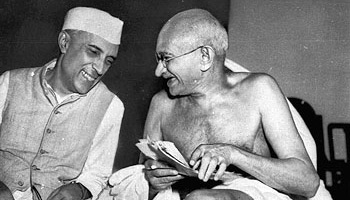 |
| Mahatma Gandhi (right) with Pt. Jawaharlal Nehru (first Prime Mininster of free India) |
Mahatma Gandhi: When doubts haunt me, when disappointments stare me in the face, and I see not one ray of hope on the horizon, I turn to Bhagavad-gita and find a verse to comfort me; and I immediately begin to smile in the midst of overwhelming sorrow. Those who meditate on the Gita will derive fresh joy and new meanings from it every day.
Henry David Thoreau: In the morning I bathe my intellect in the stupendous and cosmogonal philosophy of the Bhagavad-gita, in comparison with which our modern world and its literature seem puny and trivial.
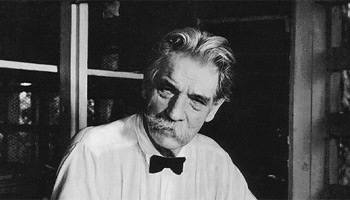
Dr. Albert Schweitzer: The Bhagavad-Gita has a profound influence on the spirit of mankind by its devotion to God which is manifested by actions.
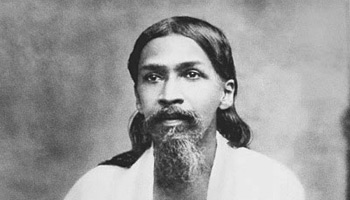
Sri Aurobindo: The Bhagavad-Gita is a true scripture of the human race a living creation rather than a book, with a new message for every age and a new meaning for every civilization.
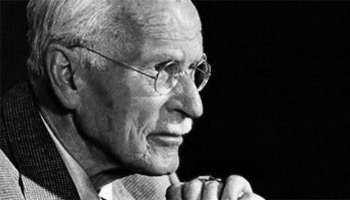
Carl Jung: The idea that man is like unto an inverted tree seems to have been current in by gone ages. The link with Vedic conceptions is provided by Plato in his Timaeus in which it states…” behold we are not an earthly but a heavenly plant.” This correlation can be discerned by what Krishna expresses in chapter 15 of Bhagavad-Gita.
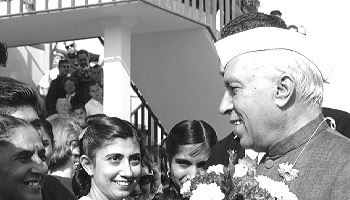
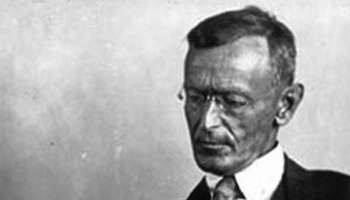
Herman Hesse: The marvel of the Bhagavad-Gita is its truly beautiful revelation of life’s wisdom which enables philosophy to blossom into religion.
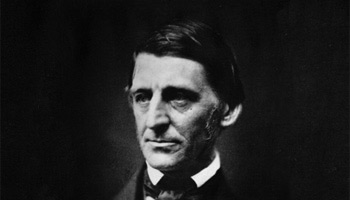
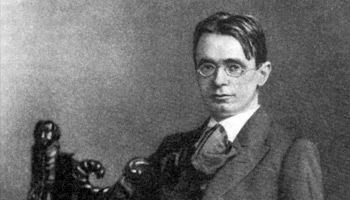
Rudolph Steiner: In order to approach a creation as sublime as the Bhagavad-Gita with full understanding it is necessary to attune our soul to it.

Adi Shankaracharya: From a clear knowledge of the Bhagavad-Gita all the goals of human existence become fulfilled. Bhagavad-Gita is the manifest quintessence of all the teachings of the Vedic scriptures.
Aldous Huxley: The Bhagavad-Gita is the most systematic statement of spiritual evolution of endowing value to mankind. It is one of the most clear and comprehensive summaries of perennial philosophy ever revealed; hence its enduring value is subject not only to India but to all of humanity.
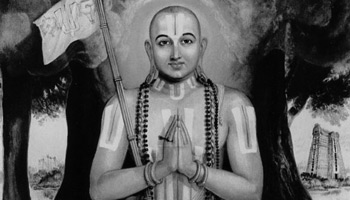 Ramanuja: The Bhagavad-Gita was spoken by Lord Krishna to reveal the science of devotion to God which is the essence of all spiritual knowledge. The Supreme Lord Krishna’s primary purpose for descending and incarnating is relieve the world of any demoniac and negative, undesirable influences that are opposed to spiritual development, yet simultaneously it is His incomparable intention to be perpetually within reach of all humanity.
Ramanuja: The Bhagavad-Gita was spoken by Lord Krishna to reveal the science of devotion to God which is the essence of all spiritual knowledge. The Supreme Lord Krishna’s primary purpose for descending and incarnating is relieve the world of any demoniac and negative, undesirable influences that are opposed to spiritual development, yet simultaneously it is His incomparable intention to be perpetually within reach of all humanity.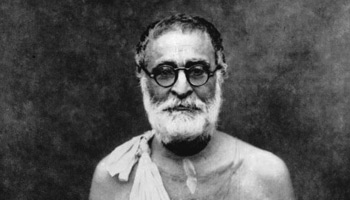
Bhaktisiddhanta Saraswati: The Bhagavad-Gita is not seperate from the Vaishnava philosophy and the Srimad Bhagavatam fully reveals the true import of this doctrine which is transmigation of the soul. On perusal of the first chapter of Bhagavad-Gita one may think that they are advised to engage in warfare. When the second chapter has been read it can be clearly understood that knowledge and the soul is the ultimate goal to be attained. On studying the third chapter it is apparent that acts of righteousness are also of high priority. If we continue and patiently take the time to complete the Bhagavad-Gita and try to ascertain the truth of its closing chapter we can see that the ultimate conclusion is to relinquish all the conceptualized ideas of religion which we possess and fully surrender directly unto the Supreme Lord.
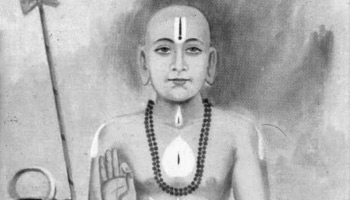
Madhvacarya: The Mahabharata has all the essential ingredients necessary to evolve and protect humanity and that within it the Bhagavad-Gita is the epitome of the Mahabharata just as ghee is the essence of milk and pollen is the essence of flowers.








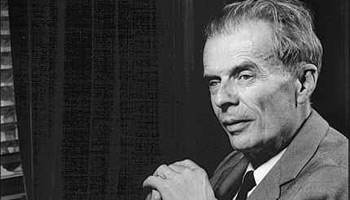
No comments:
Post a Comment